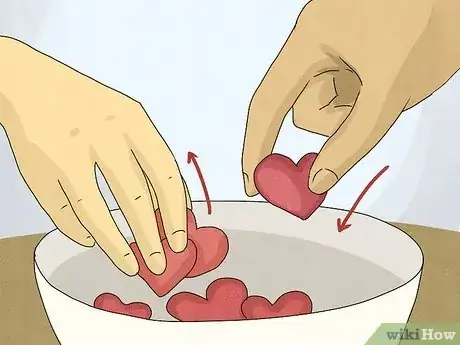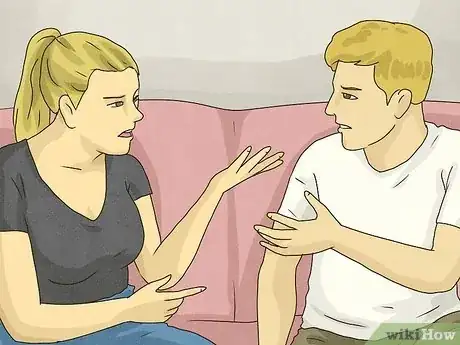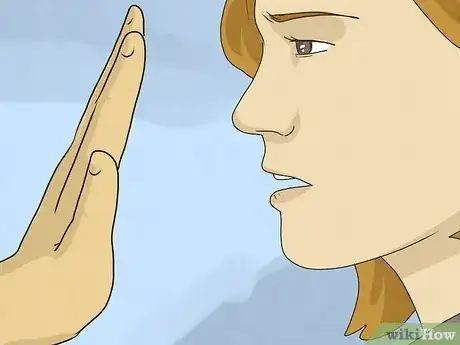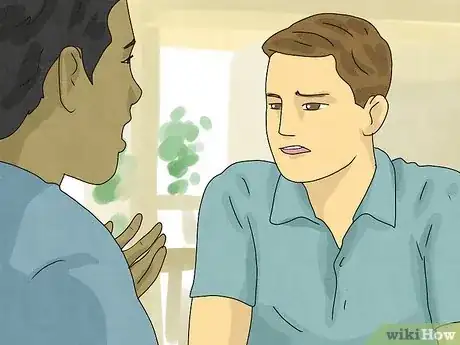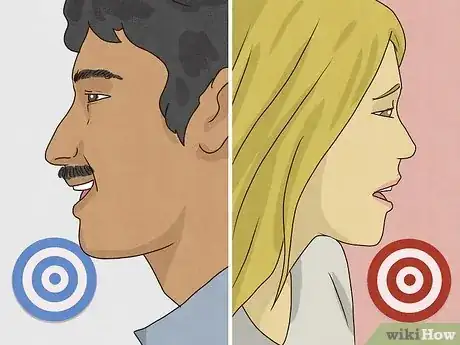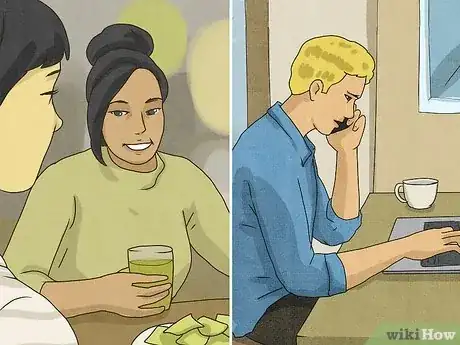This article was co-authored by Jessica George, MA, CHt and by wikiHow staff writer, Hannah Madden. Jessica George is a Marriage and Family Therapist, Certified Professional Master Life Coach, and Co-Founder of Evolve Therapy Coaching based in Glendale, California. With more than 20 years of experience, she specializes in hybrid therapy and coaching services, couples counseling, and clinical hypnotherapy. Jessica holds a Bachelor’s degree from The University of California, Santa Barbara and an MA in Counseling Psychology and Talk Therapy from Ryokan College. Jessica is trained in the Imago technique and the Gottman method for couples therapy. She also earned a Professional Life-Coach Certification from The Fowler Academy and an Infinite Possibilities Relationship Certification. She is a member of the International Board of Coaches and Practitioners (IBCP).
There are 8 references cited in this article, which can be found at the bottom of the page.
This article has been viewed 12,159 times.
If you’re having issues with one of your partners, it can be tough to figure out whether to let it go or actually break things off. Fortunately, there are clear signs you can look for in your relationship to know when it’s run its course. In this article, we’ll give you a detailed list of things to look out for so you can decide when to end your poly relationship.
Steps
You’re putting in all the effort.
-
Are you the only one contributing to the relationship? You might reach out first, give your partner affection, or plan fun dates. But if they never return the favor, it can feel draining. If you feel like you’re always the one giving and your partner is constantly taking, it might be time to rethink your relationship.[1] X Trustworthy Source Cleveland Clinic Educational website from one of the world's leading hospitals Go to source
- It’s important for both partners to put in equal effort, even in poly relationships. If your partner can’t (or won’t) make time for you, you two might not be a good fit.
Your partner wants more time and energy than you can give.
-
Is your partner unsatisfied with your time together? Polyamory often means splitting your time between partners. If you feel like your partner is never satisfied with the amount of time and energy you can give them, the relationship might not be working out. They may want to be with someone who dedicates a lot of their time to them, while you might like someone who can be more independent. Both are valid, but the two don’t mix well.[2] X Research source
- This is more common when you and your partner started out as monogamous and then opened the relationship up later. If they were on the fence about polyamory, they might be having a hard time adjusting to things.
Your partner won’t validate your feelings.
-
Does your partner gloss over issues that you bring up? Your partner might refuse to acknowledge that something is actually a problem. Maybe you bring up something that’s been bothering you, and they ask you why you’re making it into such a big deal. If your partner won’t work with you on what’s upsetting you, it’s a clear indication that this relationship isn’t working out.[3] X Research source
- For instance, you might bring up the fact that you feel smothered in your relationship. If your partner reacts defensively or questions why you’re upset about that, they aren’t showing a willingness to work things out with you.
- If this is your main issue, it’s worth trying to sit down with your partner and have an open, honest conversation. With good communication and effort on both of your parts, you can work on things together and come out on the other side.
Your partner won’t communicate with you.
-
Are you the only one bringing up problems as they arise? If you can tell that something is wrong but your partner won’t talk to you about it, that’s a red flag. Sit them down and have a conversation—if they won’t open up to you, it might be time to move on.[4] X Research source
- Sometimes, this can also look like constant bickering. If your partner is unhappy but they won’t talk with you about it, they might lash out in other ways, like snapping at you for not taking out the trash or forgetting to bring home dinner.
- Start the conversation by saying, “I can tell that something is bothering you. Can we please talk about what it is and figure out a solution together?”
You’re unhappy.
-
Do you like the relationship that you’re in? If you don’t, you don’t need an excuse to leave. No matter whether it’s a monogamous or a polyamorous relationship, if you’re feeling unhappy or dissatisfied with your relationship, you can break up with your partner.[5] X Research source Your uneasy feelings might just mean that you two aren’t a good fit.
- Think about all the good parts of your relationship. Do they outweigh the bad parts?
- If there is a concrete reason why you’re unhappy, it’s worth talking to your partner about it to see if you two can work it out. However, if you’ve already tried that or there’s no real reason, it might be time to end things.
You don’t have fun together anymore.
-
Do you two still laugh and have a good time together? Take note of whether or not you and your partner do fun stuff. When you two hang out, do you go out on dates or do shared hobbies? Do you talk about your days and have fun, engaging conversations? If you find that most of your interactions are negative, the relationship might have run its course.[6] X Research source
- If you’ve been with someone for a long time, it’s not unusual for the spark to have dimmed slightly. You can get it back by spending quality time together and taking each other out on dates.
You have different goals.
-
How well do your long-term goals line up with each other’s? As people grow and change, their wants and needs become different. If you can’t see yourselves together in the long-term anymore, that’s a valid reason to end things.[7] X Research source
- For instance, maybe your partner really wants to have children one day, but you don’t.
- Or, maybe your partner wants to close your relationship eventually, but you’re happy being polyamorous.
You’re staying together because of your past.
-
Are you only in this relationship because of how long you’ve been together? If the only thing keeping you with your partner is the fact that you’ve spent so much time together already, it might be time to end things. This is called the “sunk cost fallacy,” and it can trick us into staying in situations we don’t like for longer than we need to.[8] X Trustworthy Source Cleveland Clinic Educational website from one of the world's leading hospitals Go to source
- You might have thoughts like, “But we’ve been together for years now!” or, “It would be a waste to throw away our relationship now.” If you aren’t right for each other, it’s worth separating and being with other people who are right for you.
- This can also make you feel a little trapped inside the relationship. If you feel stuck or like you have to be with your partner out of obligation, it might be time to end things.
You’re sexually incompatible.
-
Do you have a healthy, fulfilling sex life with your partner? Sex is a huge part of any relationship. If you and your partner don’t have a fulfilling sex life anymore, it’s okay to end things. However, you should try talking to them about it first—with communication and understanding, you two may be able to work together.[9] X Research source
- In poly relationships, sometimes sex isn’t as important. If you and your partner are together more for the emotional aspect of things, you don’t need to worry about your sex life as much.
You’re feeling jealous of your partner’s partners.
-
Are you uncomfortable with your partner seeing other people? Jealousy might show that a poly relationship might not be for you. If you’ve been in a polyamorous relationship for a while but you’re still feeling jealous, sit down and talk with your partner about it. You might need to set more boundaries, or you may need to step back from the relationship entirely.[10] X Research source
- Polyamory isn’t for everyone, and that’s okay. If you decide that you don’t want to be polyamorous anymore but your partner does (or vice versa), it’s probably time to end things.
You’re growing apart.
-
Have you and your partner changed over the years? People grow and change over time, and it’s not a bad thing. If you and your partner have been together for a while, you’ve probably witnessed them blossom into a new person with new hobbies, friends, and values. If those things no longer align with yours, it’s okay to let the relationship go.[11] X Research source
You Might Also Like

 Signs Your Ex Will Eventually Come Back
Signs Your Ex Will Eventually Come Back


 What Are the Bases in a Relationship? Defining the Baseball-Sex Metaphor
What Are the Bases in a Relationship? Defining the Baseball-Sex Metaphor
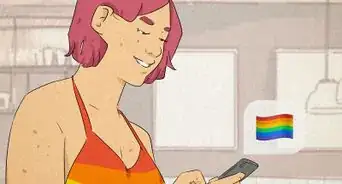 The Top Emojis a Girl Will Use if She Likes You
The Top Emojis a Girl Will Use if She Likes You
 How to Tell if Your Girlfriend Is Horny: 12 Signs She's Turned On
How to Tell if Your Girlfriend Is Horny: 12 Signs She's Turned On
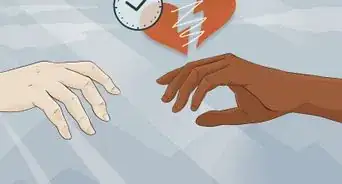 What to Do When Your Girlfriend Is Mad at You (10+ Steps to Take)
What to Do When Your Girlfriend Is Mad at You (10+ Steps to Take)
 12+ Texts to Send Your Girlfriend After a Fight: Apologies & More
12+ Texts to Send Your Girlfriend After a Fight: Apologies & More
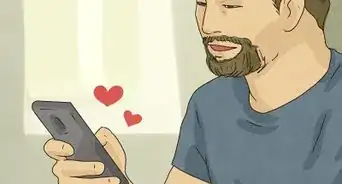 How to Have Phone Sex with Your Girlfriend
How to Have Phone Sex with Your Girlfriend
 33 Sweet & Romantic Apology Messages for Your Love
33 Sweet & Romantic Apology Messages for Your Love
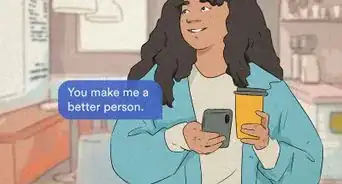

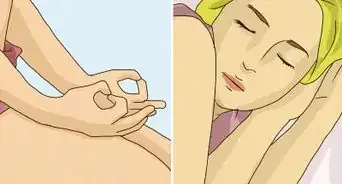 12 Ways to Break a Narcissist's Heart
12 Ways to Break a Narcissist's Heart
References
- ↑ https://health.clevelandclinic.org/one-sided-relationships/
- ↑ https://www.psychologytoday.com/us/blog/rediscovering-love/201405/when-its-time-let-relationship-go
- ↑ https://www.polyfor.us/articles/successful-relationships-can-end
- ↑ https://www.gottman.com/blog/the-four-horsemen-recognizing-criticism-contempt-defensiveness-and-stonewalling/
- ↑ https://www.pride.com/lovesex/2019/10/22/11-clear-signs-its-time-your-relationship-be-over#media-gallery-media-2
- ↑ https://www.pride.com/lovesex/2019/10/22/11-clear-signs-its-time-your-relationship-be-over#media-gallery-media-10
- ↑ https://www.polyfor.us/articles/successful-relationships-can-end
- ↑ https://health.clevelandclinic.org/how-the-sunk-cost-fallacy-could-be-keeping-you-in-bad-situations/
- ↑ https://www.polyfor.us/articles/successful-relationships-can-end
About This Article

